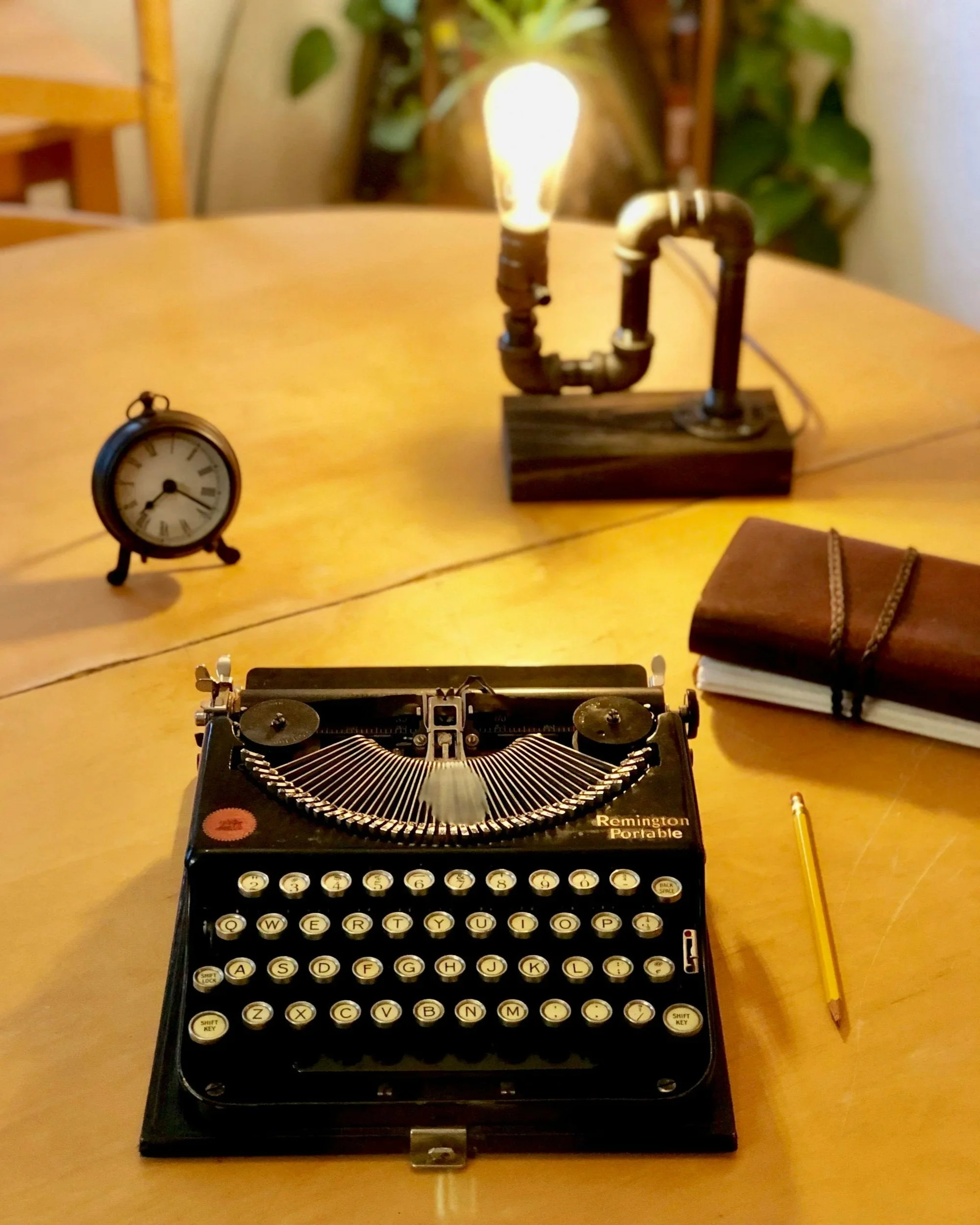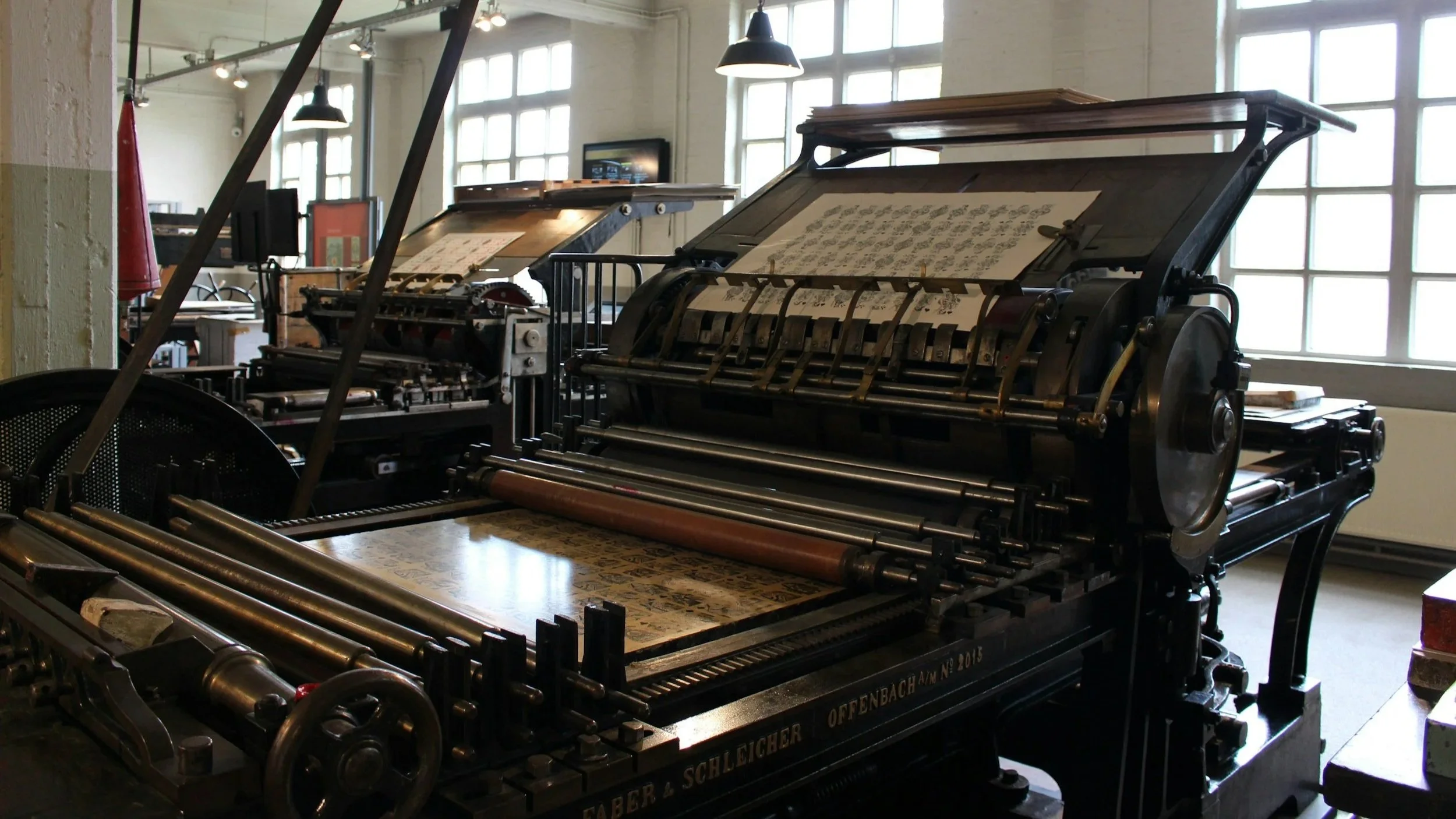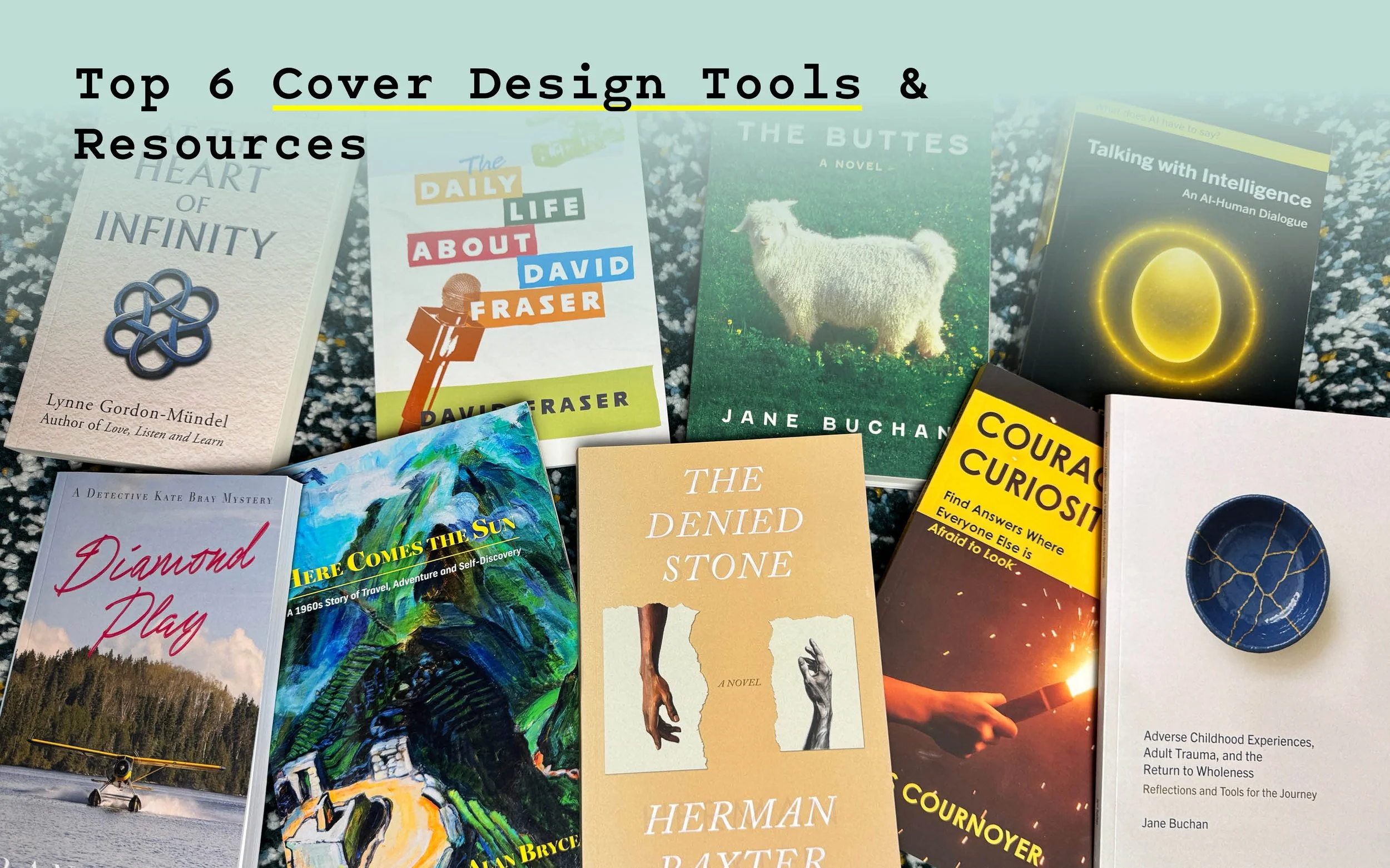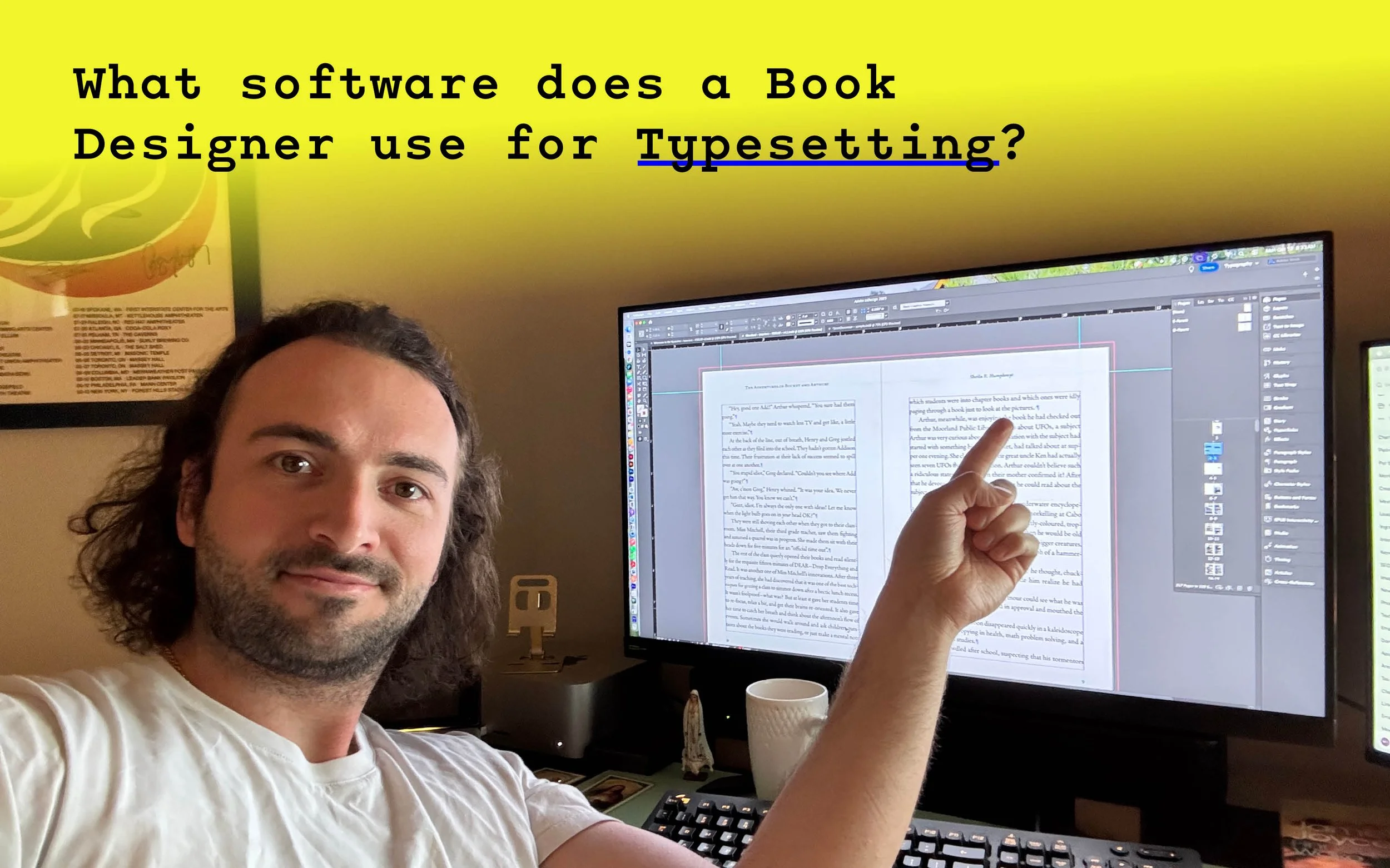Blogs and News
Welcome to the Foglio blog! Here, I share insights, tips, and behind-the-scenes stories about the world of self-publishing, book design, and typography. Whether you’re an author looking for guidance on your publishing journey or a typography nerd like me, you’ll find something of interest here.


ARC Copies Explained: How to Use Advance Reader Copies to Build Buzz for Your Book
What is an ARC copy of a book? Learn how advance reader copies work, when to send them, and how Canadian authors use ARCs to gather reviews and build early buzz.

How to Self-Publish a Book in Canada (2026 Guide)
Self-publishing a book in Canada isn’t mysterious or mechanical — it’s a series of deliberate decisions. This 2026 guide walks Canadian authors through ISBNs, editing, distribution, design, pricing, and marketing with clarity, context, and care, so you can publish a book you’ll stand behind for years to come.

How to Make A Professional Author Website (And Why You Need One)
Creating a professional author website isn’t just about aesthetics —it’s about building a home base for your writing career. In this guide, we break down the essential pages, design must-haves, and modern standards that help indie authors look polished, credible, and ready for readers.

ISBNs vs ASINs: What Authors Need to Know in 2025
Confused about ISBNs vs ASINs? This 2025 guide explains when to use each for Canadian self-publishers and why owning your ISBN can boost your book’s discoverability and professionalism.

Step-by-Step Guide: How to Successfully Publish Your Book on Amazon Canada
Learn how to publish your book on Amazon Canada with this step-by-step KDP guide. Covers formatting, pricing, keywords, listing optimization, and marketing tips.

How to Get Your Book Files Print-Ready for Professional Results
Print-ready files protect your book from surprise delays, rejections, and quality issues. This guide explains how to set the correct trim size, add bleed, prepare high-resolution images, choose CMYK colour, and build a proper full-spread cover. Follow these steps to produce clean, professional PDFs that pass every platform check on the first try.


Long-Tail vs. Short-Tail Keywords: Which Should You Use for Your Print-on-Demand Book?
Learn how short-tail and long-tail keywords impact discoverability for print-on-demand books. Get strategic guidance to boost visibility on Amazon, IngramSpark, and more.

How to Choose Keywords for Your Print on Demand Book
Discover how to select the best keywords for your print on demand book. Boost visibility, reach your target audience, and optimize metadata for success.

The Top 10 eBook Validation Errors (and How We Fix Them)
Many eBooks fail validation on the first try. From missing tables of contents to broken fonts, learn how Foglio’s experts identify and fix the top 10 errors before you publish.

Cross-Platform eBook Testing: Ensuring Your eBook Looks Great Everywhere
Even well-formatted eBooks can display differently on Kindle, Kobo, or Apple Books. Learn how cross-platform testing protects your book’s quality and how Foglio’s experts can help.

Your Expert eBook Checklist: From Manuscript to Marketplace
Before you publish your eBook, make sure it meets professional standards. This checklist walks Canadian self-publishers through every step—from file setup and layout choices to validation and distribution—so your digital book performs as beautifully as it reads.

Do Readers Judge a Book by Its Thickness? Understanding Trim Size and Perceived Value
Book thickness subtly shapes reader perception. Learn how trim size, paper weight, and layout affect value and trust — and how to choose the right proportions for your genre.

The Science of Colour Psychology in Book Design
Choosing the right colours for your self-published book cover can influence first impressions, attract readers, and support genre expectations. Learn practical, evidence-based strategies for colour selection.

Front Matter Matters: Crafting Your Book’s Title Page, Dedication and Copyright Section
Front matter sets the tone for your book. Learn how to format title pages, dedications, and copyright pages for professional self-publishing in Canada.

Building a Professional Glossary and Index for Your Self‑Published Book
A well-crafted glossary and index make your self-published book easier to navigate and more credible. Learn step-by-step how to compile, format, and typeset these sections.

Top 6 Cover Design Tools & Resources for Self-Publishers in 2025 (Canada-Focused Guide)
Your cover is your first pitch. This 2025 Canada-focused guide reviews six leading tools for DIY covers, from pro suites like InDesign to friendly options like Canva, plus author tools such as Book Brush and Placeit. Learn what to use for print wraps, thumbnails, and promos, and when to call a designer for a custom market-ready look.

The 6 Best Formatting & Typesetting Tools for Self-Publishing Authors (2025 Canadian Edition)
Want pro-looking pages without guesswork? This 2025 Canadian guide compares Vellum, Atticus, Reedsy, Affinity Publisher, InDesign, and budget options like Word or Pressbooks. Learn what each tool does well, how files export for KDP and IngramSpark, and when it is smarter to hire a typesetting pro so your book passes checks the first time.

Cover, meet Content: Harmonizing Your Book’s Interior Design with Its Cover (Guide for 2025)
A great cover makes the promise. Your interior has to keep it. This guide shows how to match fonts, colour accents, margins, and layout so the pages feel like they belong to the same book as the jacket. We cover practical steps for print and ebooks, tools to use, and simple choices that improve readability and brand cohesion.

Colour Psychology & Genre-Driven Trends: How to Design a High-Converting Book Cover in 2025
Your cover has one job before anything else. Stop the right reader and signal genre. This guide explains colour psychology, shows palettes that work by genre, and shares practical tips on contrast, typography, and thumbnail tests so your cover turns clicks into sales.




